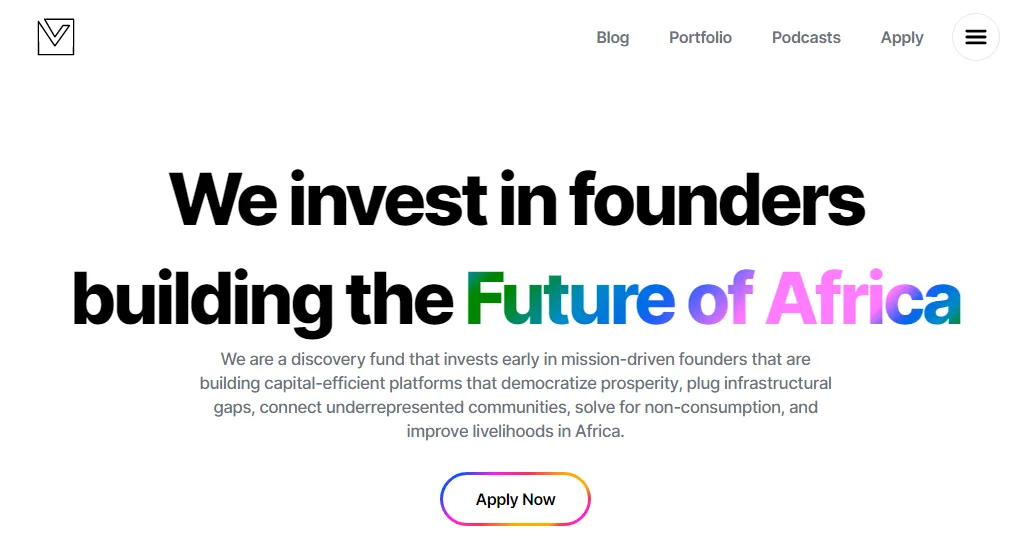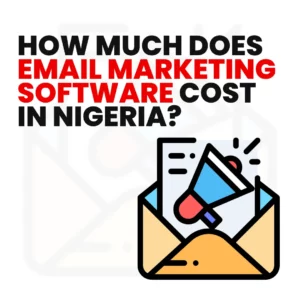You may have heard the term “startup investors” before as a Nigerian, but you might not know what it means or why it’s crucial. Simply put, startup investors in Nigeria are people or groups that give money to young businesses with excellent growth potential in Nigeria. Startup investors in Nigeria are essential to the growth of the country’s economy because they give entrepreneurs the money they need to make their business ideas work. In the past few years, Nigeria’s startup ecosystem has grown quickly. A big reason for this is that more and more investors are willing to take a chance on young, innovative companies.
In this article, we’ll look at the world of Nigerian startup investors. We’ll talk about the different kinds of investors and what they do, the problems they face, and the chances they have. This article will tell you everything you need to know about startup investors’ role in Nigeria’s economy, whether you’re an entrepreneur looking for funding, a potential investor, or just someone interested in the startup scene there.

The 5 Types of Startup Investors in Nigeria
Understanding the different types of startup investors in Nigeria is vital for entrepreneurs who want to get funding since each type of investor has a different way of doing things and needs them. As an investor, figuring out which type you are can help you find the best opportunities for your portfolio. As a Nigerian who wants to invest in a startup, it’s important to know the different kinds of investors in the country;
1. Angel Investors
Angel investors are common types of startup investors in Nigeria. They put their own money into early-stage startups in exchange for a piece of the company. Angel investors are usually wealthy business owners who want to use their money to help projects they care about, especially startups that need help. Many angel investors are also successful business owners, corporate leaders, or people who work in business.
Most of the time, this investment comes in the form of a loan or stock purchase. However, they sometimes also help guide or mentor the business they invest in. Some angel investors, for example, focus on a specific type of company, like one that makes new technologies.
In some cases, these “angel” investors put up a lot of money to make a lot of money back if the company is bought out by a more prominent company or goes public on the stock market. This kind of angel investor is usually busy when the economy is strong or stable.
If an angel investor has reached out to you or you are thinking about doing so, ask the following questions:
Do you want to be in charge in exchange for your money? If so, How much control do you want?
Why do you do what you do?
How long have you been working on the pitch?
Does our startup meet your requirements?
A promissory note says the terms of a loan from an angel investor. Angel investors can use angel groups to pool their money and make more significant investments.
2. Venture Capitalists
Venture capitalists are professional investors who put their own money into a company in exchange for a share of the company. These investors only invest in about 1 out of every 100 deals they see, while angel investors invest in about 1 out of every 10. They also do a lot of research before making an investment, which can take up to five months for each one.
Venture capitalists put millions of dollars into a business in exchange for a share of the company. This is called equity capital. The investment is based on the idea that the value of the equity capital will rise over time and that they will get a return on their initial investment. This type of investor usually works with businesses with a good business plan and has already had some success. You’ll need to show that you have a good business plan and will make a lot of money. Venture capitalists don’t usually put money into startups that are seen as risky.
When business owners take money from venture capitalists, they give up some of their stake in the business. As a result, some investors will want to have a say in how the business is run. You’ll also pay this investor a higher return on investment (ROI) than you would on a traditional business loan.
When working with a venture capitalist, make a detailed partnership agreement that spells out each person’s rights and what they can expect from the other. Venture capitalists sometimes act as mentors but are usually more involved in running the business. When looking for venture capital opportunities, getting a tip from someone you know is best. For example, you can ask your current investors to spread the word about your business to their networks to find even more money.
3. Corporate Investors
Corporate investors are another type of startup investor in Nigeria. They usually invest in startups that fit their business interests or strategic goals. Big companies can get a lot out of investing in new businesses. Some of these things are keeping up with their own growth numbers, diversifying their assets, and finding talent and technology that can help them deal with changes in the industry and keep their sales and profits going. Some people have money to put into outside startups. More people are starting their own accelerators, incubator, and ecosystem programs to help these opportunities grow. For example, Microsoft is a big company that invested money into OpenAI, which is the parent company of ChatGPT. So, Microsoft was the first to use ChatGPT to improve its search engine (Bing).
These investors can be great partners in helping your business grow. Though they can be very different to work with, any integration or collaboration on sales channels, systems, and customer bases needs to be done carefully and with a lot of patience.
Startup founders and corporate investors usually have very different styles and points of view. So if you want this to be a good relationship, you’ll need to get to know each other and set some rules from the start.
4. Personal Investors
You might have yet to think about asking friends and family to invest in your new business, but this is a common way to do it. In fact, personal investors make up a bigger piece of the pie than any other type of funding source. Of course, this method works best for getting money to start a new business. However, personal investors can make long-term investments if they are loyal to and like the business.
Like any other type of investment, personal investments should be governed by a contract. This could stop the risk that comes with mixing business and family. Make sure your family relationships are strong enough to be kept separate from your business relationships. For example, if the business doesn’t go as planned, you could hurt your loved one’s finances as well as your own. Sign a promissory note explaining the loan terms and a separate contract if a partnership is being considered.
5. NGOs and Government Agencies
Lastly, the government and non-government organizations can help startups, especially those that focus on social or environmental issues, by giving them money and other kinds of support. These people aren’t real investors like the others on this list, but they can provide you with money. There might also be government grants for certain kinds of projects. That doesn’t mean getting this kind of capital will be more accessible, and loans must often be paid back when you need as much cash and flexibility as possible. They won’t require you to give up ownership of your business, but they can change how profitable your business is, which could be a problem when you try to get money from other investors in the future.
One thing to keep in mind about government programs is that they often come with rules and restrictions that can be hard for new businesses. So, founders should carefully look over what those expectations are.

Top 8 startup investors in Nigeria
Studies have shown that over 80% of new businesses fail in their first year. One common reason is that there needs to be more money. Money keeps a business alive. The long, challenging, exciting road from an idea to a business that makes money needs capital.
Even though the technology sector in Nigeria is making real progress in terms of funding, it is still challenging for entrepreneurs in Nigeria to raise money. If you want to raise funds for your new business? Here are the top 8 Nigerian investors and venture capitalists who work with startups in their early stages.
1. The Growth Capital Fund.

Growth Capital Fund by CCHub is Nigeria’s first social innovation fund. Its goal is to give outliers who are driving social change in Nigeria a way to grow that has never been done before. GC-Fund helps high-potential, early-stage businesses that are using technology to build the infrastructure of the next generation. CCHub, Omidyar Network, Bank of Industry, and Venture Garden Group are all investors in the GC-Fund.
2. The GreenTree Investment Company.

GreenTree Investment Company is an investment company that helps startups get funding, set up “a bulletproof corporate governance framework,” and get legal and financial advice, among other things. Since GreenTree Investment Company started in 2014, it has given money to a lot of new businesses. Some of the best-known are Paystack, Precurio, and Big Cabal Media.
3. Microtraction.
Technology entrepreneurs can get money quickly through Microtraction. Microtraction gives money to intelligent, resourceful founders who are building fast-growing, technology-based businesses in markets worth $1 billion or more. Recently, the platform said it was investing in Nigerian startups like Cowrywise, BuyCoins, Wallet.ng, Allpro, and Thank-U-Cash.
4. Lagos Angel Network (LAN).
The Lagos Angel Network is one of Africa’s most active angel networks and the best in Nigeria. It is a group of business angels who help start-ups in Lagos, Nigeria, by giving them money and advice. LAN is the first network in Nigeria made just for financing early-stage and new businesses. It was started in 2014 and is only open to members. Since LAN was started, its members have put money into more than a dozen new businesses in Lagos.
5. Venture Platform.

Ventures Platform is a fund that helps post-MVP teams grow their startups by focusing on growth in the early stages. Ventures Platform backs Africa’s most brave business owners and helps them turn their ideas into great companies. Kola Aina, who is a big fan of angel investing and assisting new businesses, started Venture Platform. Some of the most popular Nigerian startups in Ventures Platform’s portfolio are MobileForms, GeroCare, Accounteer, Jalo, PiggyBank, Wesabi, and many more.
6. GreenHouse Capital
GreenHouse Capital is an independent investment holding company that Venture Garden Group started in January 2016. Their goal is to build Africa’s largest Fintech investment holding company by directly investing in African technology companies that support and break up banking services. GreenHouse Capital has put money into startups in Nigeria like Flutterwave, Max.NG, Rensource, Riby, and TalentBase.
7. EchoVC Partners.
EchoVC Partners is a seed and early-stage venture capital firm that focuses on funding and combining the best technologies, teams, and business models from Sub-Saharan Africa and North America. As investors who don’t care about what stage a company is in and have both local and global connections, EchoVC takes a new approach to invest in the technology intersection of consumer, media, data, and devices. They also use knowledge transfer from Silicon Valley to drive growth across borders. Hotels NG, Cars45, Lifebank, MyPadi, and Printivo are some of EchoVC’s most well-known investments.
8. SLA Accelerator.
She Leads Africa has created a 3-month programme called SLA Accelerator to find, support, and fund the next generation of Africa’s best entrepreneurs. She Leads Africa is a social enterprise that helps young African women get to where they want to be in their careers. The organization has been featured on CNN, CNBC Africa, Black Enterprise, and Fox Business, and it has more than 400,000 members in Africa and the diaspora.

The Startup Ecosystem in Nigeria
You may have heard about Nigeria’s growing startup ecosystem if you live there. This refers to the group of business owners, investors, and other people who work together to start new businesses with new ideas.
Nigeria has become a centre for new businesses in the past few years, especially in the tech sector. Lagos, the country’s commercial capital, has been called “Africa’s Silicon Valley” because there are so many tech startups there.
The Nigerian startup ecosystem is driven by several things, such as a large and growing number of young people with an entrepreneurial spirit, an expanding middle class with more money to spend, and a government policy that encourages investment in startups.
The major players in the Nigerian startup ecosystem are incubators, accelerators, angel investors, venture capitalists, and corporate investors. Incubators, accelerators, and angel investors help early-stage startups get the support and resources they need to grow and thrive.
Overall, Nigeria is an excellent place for people who want to invest in new businesses. By putting money into promising startups and helping the country’s startup ecosystem grow, you can help the economy grow and improve Nigerian society.
In Conclusion
Nigeria’s startup ecosystem is thriving; there has never been a better time to get involved. If you act now and work with experts, you can help Nigeria’s economy grow and make a positive difference in the country’s society. Whether you’re an angel investor, a venture capitalist, or a corporate investor, it’s essential to know the different types of startup investors in Nigeria and the opportunities you have.
So, what should we do next? If you want to invest in Nigerian startups, you can find a lot of information to help you get started. Check out local incubators and accelerators, go to startup events and pitch competitions, and meet other investors and business owners in the area.
As a digital marketing expert in Nigeria, I can also help you generate leads and reach your target audience through targeted online marketing campaigns. In addition, we can help you connect with promising startups and grow your investment portfolio by using the power of social media and other digital marketing channels.




